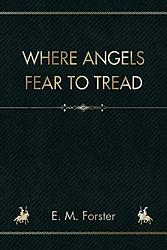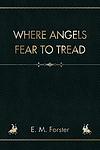Where Angels Fear to Tread by E. M. Forster
This novel explores the clash of cultures between conservative English society and passionate Italy through the experiences of a young English widow, Lilia Herriton, who impulsively marries a younger Italian man, Gino Carella, while vacationing in Tuscany. The Herriton family, particularly Lilia's brother-in-law Philip, travels to Italy in an attempt to prevent the marriage and later to regain custody of Lilia's child after her death. The narrative critically examines the restrictive morals and prejudices of Edwardian England while highlighting the destructive effects of blind adherence to societal conventions.
The 2082nd greatest book of all time
Ranking Details:
Our ranking system awards points to books based on their appearance and position on curated lists. Here's how it works:
Unranked Lists: For lists without specific rankings, each book receives points equivalent to the list's weight. This approach recognizes the book's inclusion on prestigious lists.
Ranked Lists: Books on ranked lists receive points in two ways:
- Base Points: Initially, every book is awarded points equal to the list's weight, acknowledging its significance.
- Bonus Points: Additionally, books earn bonus points based on their ranking. The total bonus pool, equal to 100% of the list's weight, is distributed among the books, with higher-ranked books receiving more points.
Exponential Distribution: The distribution of bonus points follows an exponential model. This means the top-ranked book (#1) receives significantly more bonus points than those further down the list (e.g., #100). Our algorithm ensures that higher placements are rewarded more generously, reflecting the achievement of a top rank on any given list.
This scoring system ensures that each book's ranking reflects both its presence on multiple lists and its positions within those lists, providing a comprehensive measure of its acclaim and popularity.
Total Points: 174
Since this book was first published in 1905, there is a penalty of 0%. The age adjusted score is 174.0.
This is to prevent newer books from reaching super high on the ranked list of the greatest books of all time. The greatest books should also stand the test of time.
- score: 90 -- Our Users' Favorite Books of All Time (Weight: 90)
- score: 84 -- Radcliffe's 100 Best Novels (Weight: 84)

